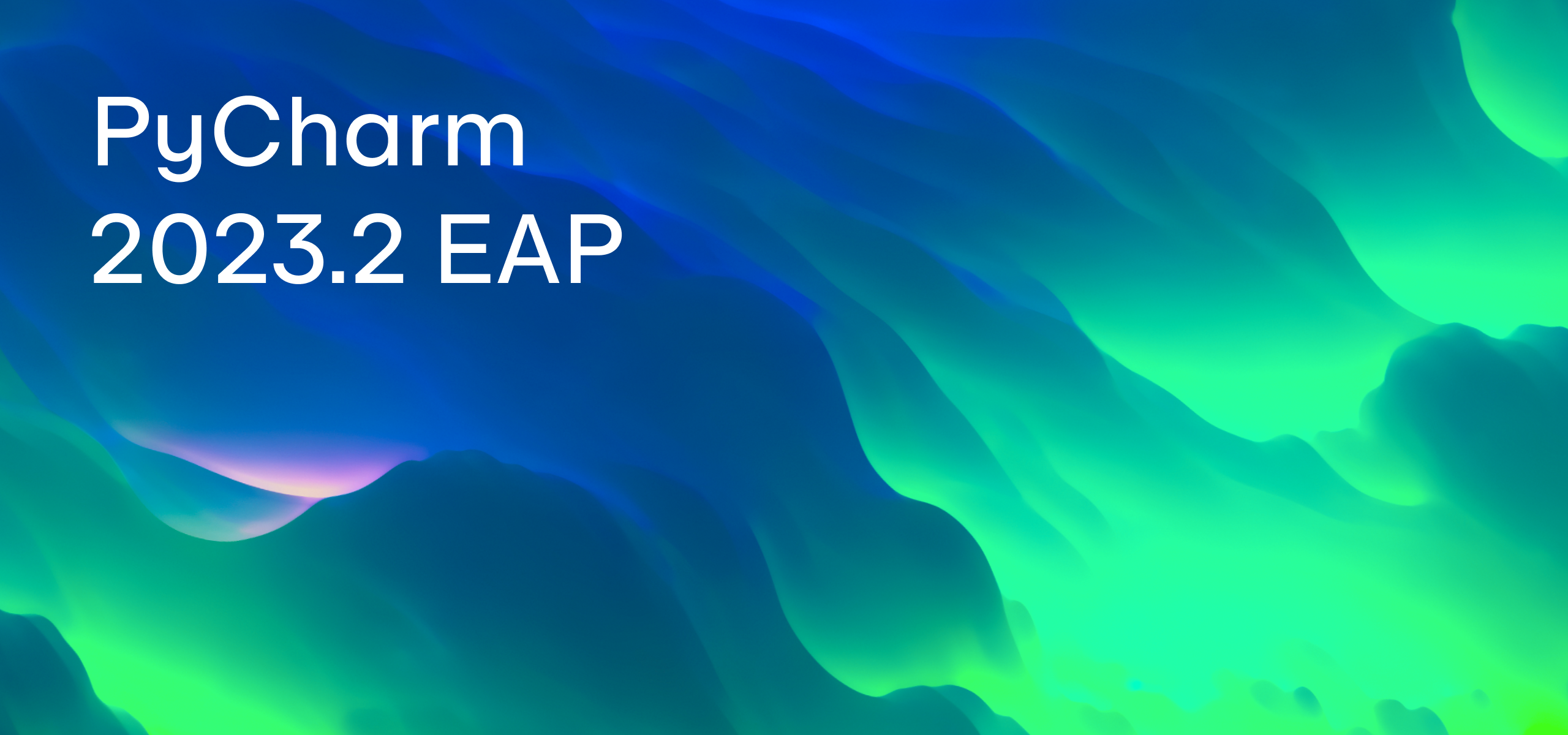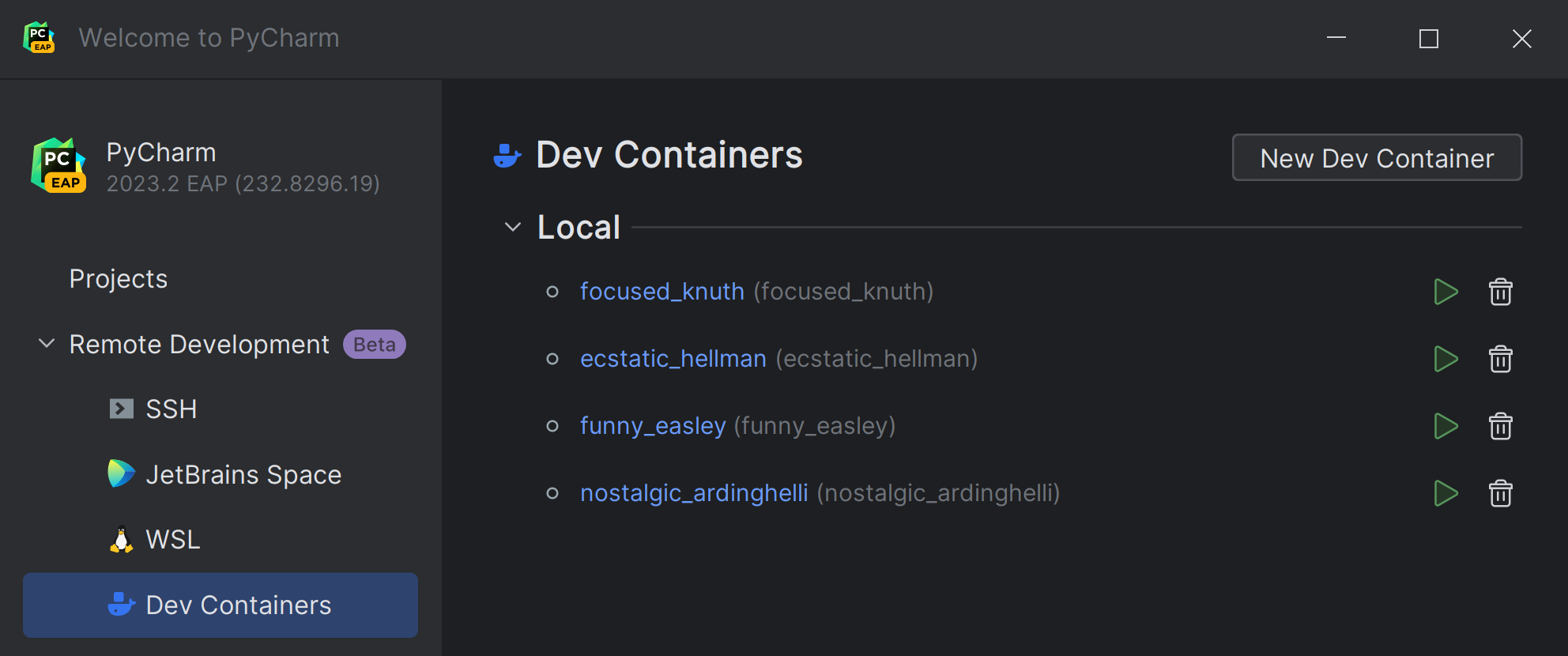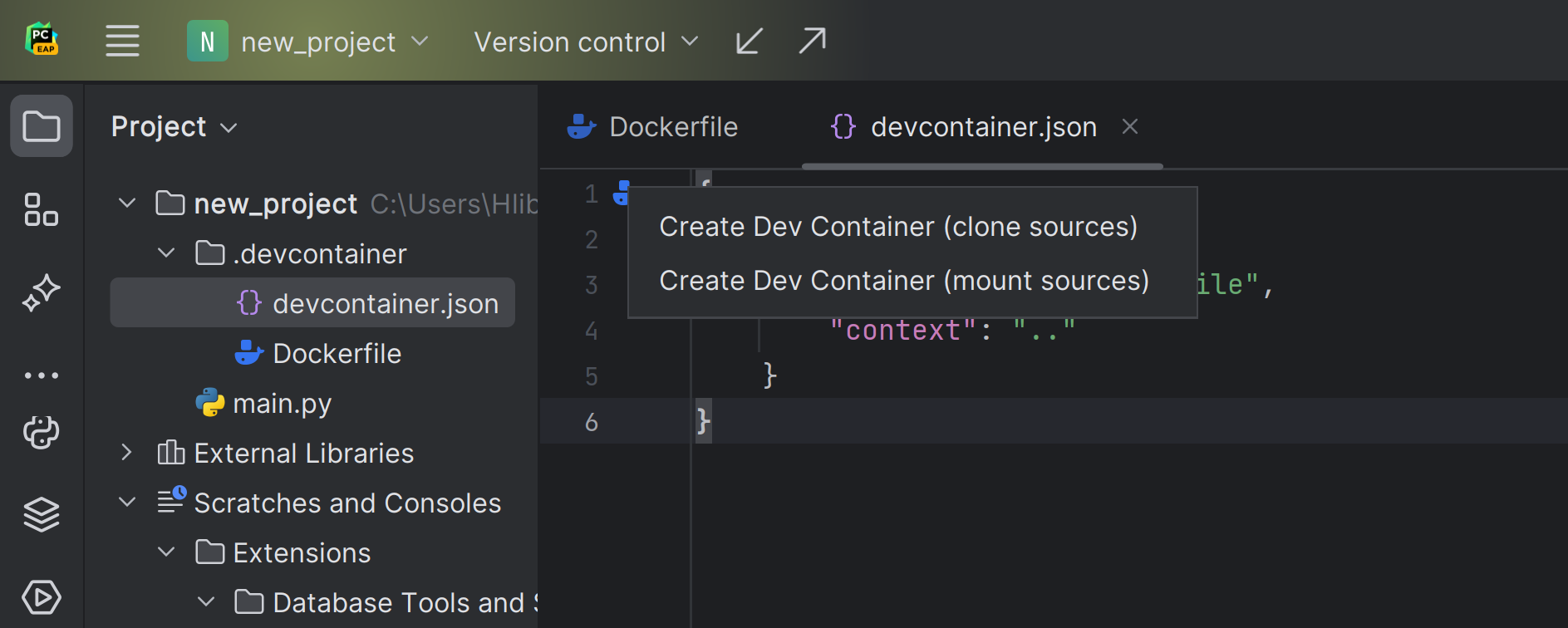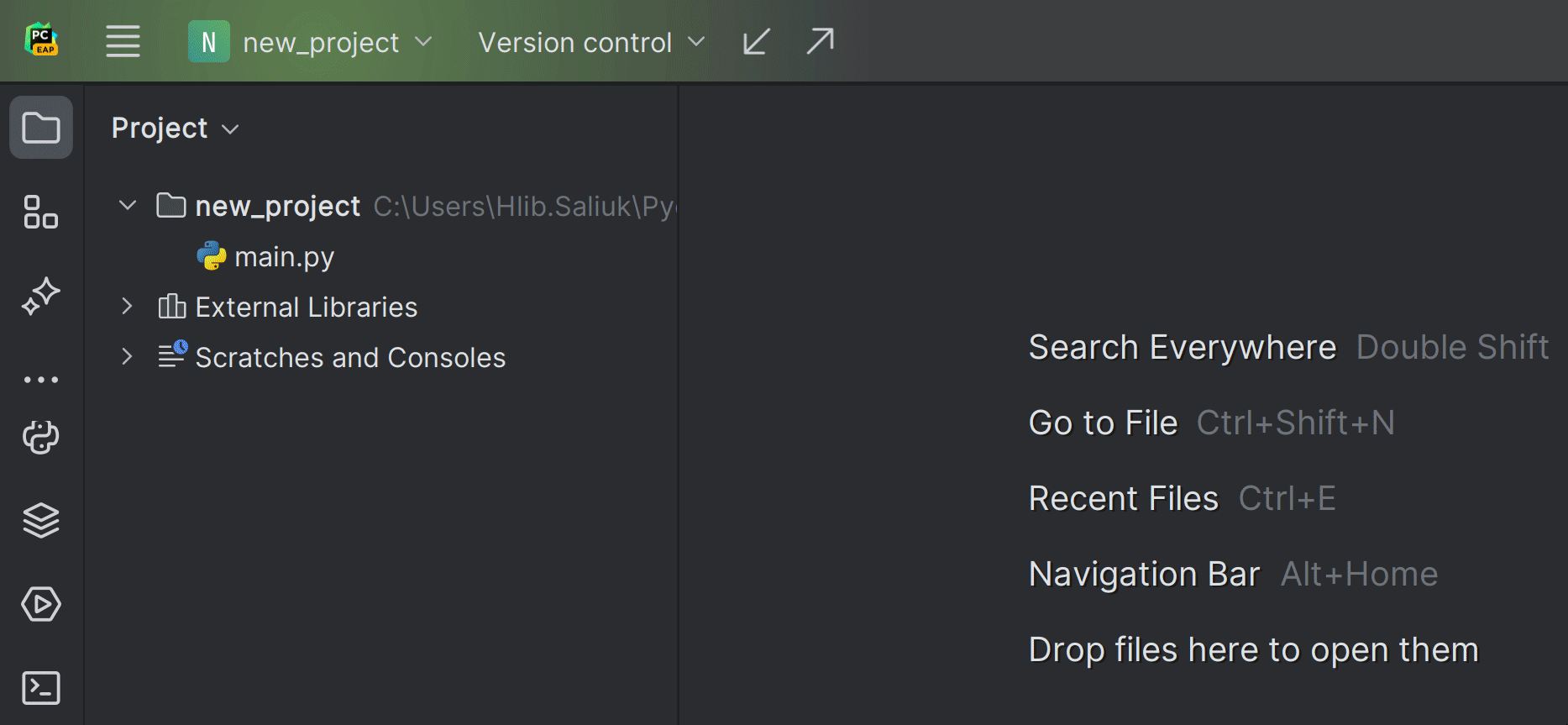PyCharm 2023.2 EAP 4 Is Out!
PyCharm 2023.2 EAP 4 is now available with updates like the new AI Assistant, support for Dev Containers for Gateway, and UI enhancements. To catch up on all of the new features PyCharm 2023.2 will bring, check out our previous EAP blog posts.
The Toolbox App is the easiest way to get the EAP builds and keep both your stable and EAP versions up to date. You can also manually download the EAP builds from our website.

Important! PyCharm EAP builds are not fully tested and might be unstable.
Artificial Intelligence
AI Assistant (Beta)
This week’s EAP build brings in a major addition to PyCharm – the AI Assistant. It is powered by the JetBrains AI service and incorporates the capabilities of OpenAI along with JetBrains’ own smaller models. PyCharm EAP 4 provides the initial set of AI-powered functionalities, including an integrated AI chat, automated documentation generation, name suggestion, and commit message generation.
To access these AI features, you’ll need to be logged into the JetBrains AI service using your JetBrains Account. Availability for the JetBrains AI service may vary initially. For more information on the AI Assistant and instructions on how to access it, refer to this blog post.

Remote development (Beta)
Support for Dev Containers
PyCharm now supports Dev Containers, allowing you to use containers as a full-featured development environment to edit, build, and run your projects. Dev Containers can be run remotely via an SSH connection or locally using Docker.
To utilize this feature, ensure that Docker is installed on your machine. From the Welcome screen, select the Dev Containers option in the Remote Development section and provide the Git repository link to set up the connection.

In addition, you can configure your local or remote environment directly within the editor by opening the devcontainer.json file. By clicking on the Docker icon in the gutter, you can choose to either clone or mount the project sources.

The initial support includes a limited number of devcontainer.json options. We value your feedback on this update and encourage you to share any use cases that you believe should be covered in future updates.
User experience
Colored project headers in the new UI
PyCharm 2023.2 EAP 4 introduces colored headers to simplify navigation between several open projects. You can now assign a unique color and icon to each of your projects, making it easier to distinguish them in your workspace.
Headers now come with predefined colors by default, but you can customize them. To set a new color for your project, right-click on a header and access the context menu. Select the Change Toolbar Color option and choose your desired color. To disable this feature, simply deselect the Use Project Colors in Toolbar option in the context menu.

These are the most notable highlights of the PyCharm 2023.2 EAP 4 build. To see the full list of changes in this EAP build, please refer to the release notes.
Try out these new features and let us know what you think in the comments below or on Twitter. If you encounter any bugs, please report them via our issue tracker.
Subscribe to PyCharm Blog updates








